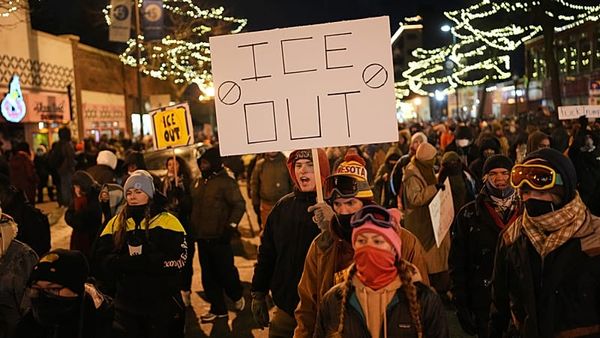Buying a car can be one of the biggest expenses in a person’s life, but it doesn’t always have to be. Wrecked cars for sale offer a lesser-known but highly practical way to get behind the wheel without draining your bank account. While they may not be perfect when you buy them, many wrecked cars are repairable, drivable, and—most importantly—affordable. For those willing to do the research and take on some risk, they can be a smart investment.
What Qualifies as a Wrecked Car?
A wrecked car is a vehicle that has sustained some form of damage, typically from a collision or other significant event. These cars are often considered total losses by insurance companies, meaning the cost to repair them exceeds a certain percentage of the vehicle’s market value. Once totaled, they are issued a salvage title and sold through auctions, salvage dealers, or specialty platforms.
Damage can range from minor dents and cosmetic scratches to severe structural or mechanical issues. Some wrecked cars may have been repaired already and reclassified under a rebuilt title, while others are sold as-is.
Why Buyers Are Interested in Wrecked Cars
The primary appeal of wrecked cars for sale is the price. Because these vehicles have a history of damage and are often sold as-is, they are typically listed at a fraction of their pre-accident value. This can make them an appealing choice for:
- Budget-conscious drivers
- Mechanically inclined individuals
- Auto repair students
- Car enthusiasts seeking a project
- Parts resellers
Wrecked vehicles can be a way to own a newer model with modern features that might otherwise be out of reach. For someone willing to invest time and money into repairs, the cost savings can be significant.
Evaluating the Condition of a Wrecked Car
Not all wrecked vehicles are equal. Some may have suffered only superficial damage, while others may have been in severe collisions that affected their frame, suspension, or engine. It’s important to inspect the vehicle—or at least thoroughly review photos and documentation—to understand what you’re getting into.
Look for signs such as:
- Airbag deployment
- Crushed frame rails
- Misaligned panels or doors
- Leaking fluids
- Electrical issues
Many auction listings include condition reports, damage codes, and repair estimates. If you’re unsure about a vehicle’s condition, consider hiring a third-party mechanic to inspect it before you commit.
Understanding Titles and Legal Requirements
One of the most important aspects of buying wrecked cars is the title status. Most of these vehicles will come with a salvage title, meaning they are not legally allowed on public roads until they are repaired and pass a state-mandated inspection. Once this process is complete, the vehicle may be issued a rebuilt or reconstructed title.
Each state has its own regulations for salvaged and rebuilt vehicles, including required inspections, paperwork, and fees. Be sure to check your local laws before buying so you understand the process involved in registering the car.
In some cases, a vehicle may have a clean title despite having been wrecked. This can happen if the previous owner chose not to go through insurance. In these situations, a vehicle history report becomes essential to uncover the extent of past damage.
Repair or Parts: Choosing the Right Path
Before buying, decide whether your goal is to repair the wrecked car or use it for parts. Repairing the vehicle can be cost-effective if the damage is minor or cosmetic and you have access to affordable labor or can do the work yourself.
On the other hand, some buyers specifically look for wrecked cars to use as donor vehicles. If you already own the same make and model, buying a wrecked version can provide a reliable source of replacement parts like engines, transmissions, or body panels.
Cars with extensive damage may not be worth rebuilding but can still offer valuable components for resale or use in other projects.
Setting a Realistic Budget
It’s easy to focus on the low purchase price, but you should consider the full cost of getting the car road-ready. Your budget should include:
- Purchase price
- Towing or shipping costs
- Parts and materials
- Labor (if not self-repairing)
- Inspection and registration fees
- Insurance
It’s also wise to include a contingency fund for unexpected repairs or upgrades that arise during the process. A good rule of thumb is to add 20 percent to your initial cost estimate to account for surprises.
Finding Wrecked Cars for Sale
You can find wrecked cars through a variety of sources, including:
- Online salvage auto auctions
- Insurance auctions
- Local junkyards and salvage yards
- Dealers that specialize in rebuildable vehicles
Online platforms typically offer the widest selection and the convenience of browsing from anywhere. These listings often include damage descriptions, photos, and title status. Be sure to research the seller’s reputation and understand the terms of sale, including fees and delivery options.
Insurance and Financing Considerations
Getting insurance for a wrecked or rebuilt car can be more complicated than for a clean-title vehicle. Many insurers offer only liability coverage for rebuilt cars, while full coverage may require documentation of the repairs and an inspection.
Financing is another consideration. Some banks and credit unions are reluctant to issue loans for salvage or rebuilt vehicles. You may need to pay in cash or seek alternative financing sources. Contact your insurance provider and lender before purchasing to avoid unexpected setbacks.
Who Should Buy Wrecked Cars
Wrecked cars are not for everyone. They are best suited to buyers who:
- Have experience with auto repairs or access to affordable mechanics
- Are comfortable with delayed use while repairs are completed
- Want to save money by handling part of the work themselves
- Are looking for a parts car or project vehicle
If you need a vehicle immediately or don’t want to deal with inspections, paperwork, or repairs, a clean-title used car may be a better choice.
Final Thoughts
Wrecked cars for sale present a valuable opportunity for the right buyer. With patience, preparation, and a willingness to take on a bit of work, you can score a reliable vehicle at a fraction of the usual cost. Whether you plan to rebuild and drive it, sell it after repairs, or use it for parts, wrecked cars offer flexibility and affordability that traditional options often can’t match.
Just make sure to do your homework, assess the damage realistically, and understand the legal and financial implications. With a solid plan in place, a wrecked car could turn out to be your best automotive decision yet.







